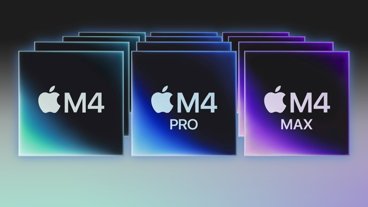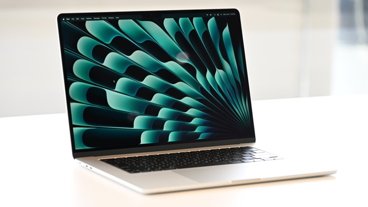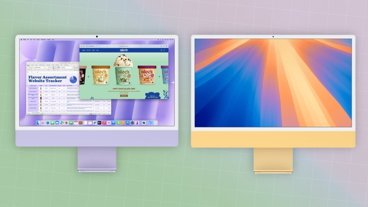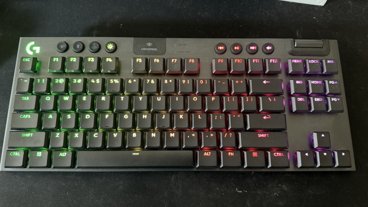Engineers working on the hardware design of Apple Computer's second-generation iPod nano are facing several technical challenges, but it's currently unclear whether the obstacles will delay the player's release.
While Wu did not go into specifics, people who claim to be familiar with the project say Samsung is facing timing-related challenges with the multi-NAND flash memory configuration Apple has commissioned for the project — primarily due to differences in the SoC from PortalPlayer's chips.
In an effort to maximize battery life, Samsung has also been developing the player to use as "little power as reliably possible," but this has been causing some brownout issues with its larger NAND chips, these people added.
However, over 90 percent of the defects in the project are said to have been ironed out at this time. Therefore, it may be too early to tell whether the remaining issues will force Apple to delay the nano's expected manufacturing ramp of late August.
Still, that hasn't stopped NAND memory makers from beginning to worry about possible delays, which could send NAND flash prices into a down-spin.
"The news of the possible delay came just about a week after Samsung Electronics, which is the world's largest maker of NAND flash and is the chief supplier of memory for iPods, offered an optimistic outlook for its NAND flash sales for the third quarter," DigiTimes notes. "Sources in Taiwan's memory sector questioned why Samsung would paint a rosy picture for NAND flash if Apple was going to delay the launch of video iPods and next-generation iPod nanos, as reported this week."
Optimally, Apple aims to begin shipping the new players by the second half of September, reliable sources have said.
 Prince McLean
Prince McLean







 Andrew Orr
Andrew Orr

 Christine McKee
Christine McKee
 Malcolm Owen
Malcolm Owen
 Amber Neely
Amber Neely

 William Gallagher
William Gallagher









7 Comments
Um, wouldn't a shortage of NAND chips signal a possible spiraling of costs (upward)? This article suggests that prices would be falling...
Um, wouldn't a shortage of NAND chips signal a possible spiraling of costs (upward)? This article suggests that prices would be falling...
Shortage was not used in the article. Apple delaying iPod shipments creates an over supply and therefore lower prices.
Nice how the nano dominates the entire flash market...
Come on FlashBook! (Yes, I know, it doesn't have "Mac" in the title so won't be the real name.)
Um, wouldn't a shortage of NAND chips signal a possible spiraling of costs (upward)? This article suggests that prices would be falling...
That's not the idea here. The idea is that with a delay in the introduction, there would be chips that are not being sold, or used by Apple, until a later date, resulting in production that would be sitting around.
Nice how the nano dominates the entire flash market...
Come on FlashBook! (Yes, I know, it doesn't have "Mac" in the title so won't be the real name.)
I shall call him - MacFlash. And Queen will write his theme song:
MacFlash - a-ah - saviour of the universe
MacFlash - a-ah - he'll save everyone of us
Ha ha ha ha ha ha ha ha ha
MacFlash - a-ah - he's a miracle
MacFlash - a-ah - king of the impossible